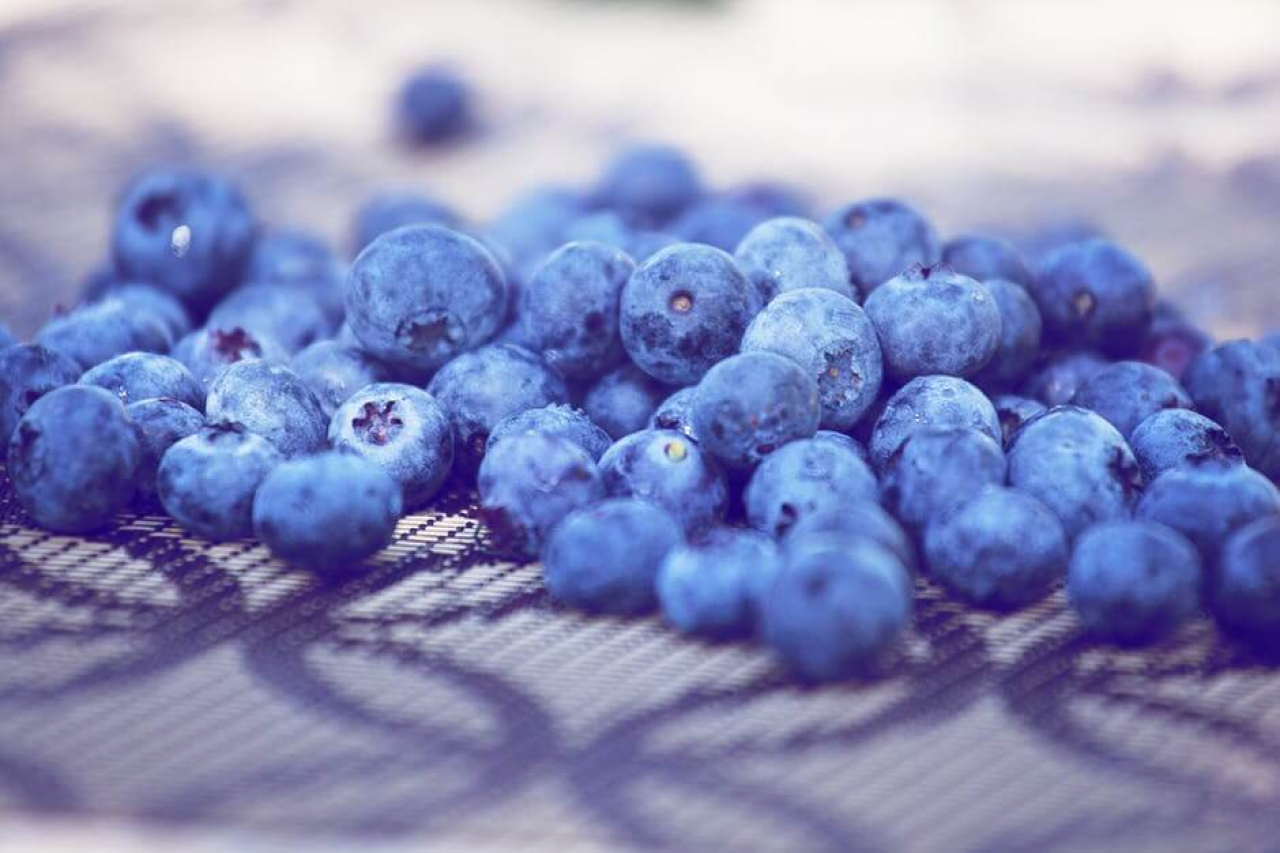
Can Dogs Eat Blueberries? Are They Good For Dogs?
Before we deep dive into the topic, let's get one thing out of the way: blueberries can be both good and bad for dogs, depending on how you give them to your dog.
Can you give your dog blueberries? Yes. They're fit for dog consumption. But like anything else you give your dog that isn't expressly for them, you need to be careful and thoughtful.
If there are blueberries in dog treats or dog food, your dog can snack on that without a problem. But, when it comes to blueberries purchased from the store or picked from your garden (if you're lucky!), you'll need to keep an eye on them.
Nutrients in Blueberries
Blueberries provide serious nutrients for people, and they provide the same thing to their best friends.
These little berries are rich in antioxidants, which means that if both you and your best pal indulge, you both may be staving away cancer and cardiovascular problems. This is fantastic news if you both plan to live to a ripe old age.
Blueberries can also boost both of your immune systems. This means they can help you fight things like arthritis, flu and cold viruses and even aging.
Blueberries are a great food to eat as you get older, as they are for your dog. As both you and your dog age, your brain does too. In some cases, this can lead to cognitive issues like dementia, which also affects our furry friends. These magical blueberries can keep both of you in tip-top shape and healthy as you both advance in years.
They're rich in vitamin C, which is probably one of their greatest virtues. Vitamin C keeps both of you healthy at a cellular level. This helps keep skin, bones, cartilage and blood vessels healthy. It also helps aid in wound healing for both man and dog. This is discussed in our Can Dogs Eat Strawberries article.
They're also high in fiber, which is great for those dogs and humans who struggle to stay regular.
Blueberries are Low in Calories, Which is Great for Weight Conscious Dogs
In reality, there are no dogs that are conscious of their own weight. In fact, many dogs would happily eat far more than is appropriate for their ideal weight and size. And because we humans love to indulge our best pals, it's no wonder that a recent United Kingdom study found that 59% of dogs are overweight obese.
Yes, the very human problem of battling an ever-increasing waistline has befallen on our pets.
This is caused by a variety of factors. One of the most common is overfeeding, just as overeating is one of the most common reasons people are overweight. If you see your dog making eyes at you and you know your dog can eat the food you're holding, chances are high you'll give him or her some.
After all, food is a way to help train a dog and for a dog to bond with his or her owner. Plus, most owners don't like to see their dogs wanting anything, so handing over extra food every now and then seems hard to resist.
Additionally, both people and dogs have grown sedentary as time has worn on; many hunting dogs are now live in suburbia where they spend 80% of their day napping and waiting for their human to return. In the olden days, people could let their dogs roam without a leash so that they got their exercise. But now, we recognize how dangerous that can be, however detrimental a sedentary life is to your dog's waistline.
Some dog food and dog treats can be high in calories, and a small dog only needs a few hundred a day. Going over can result in dreaded weight-gain. But, blueberries are a great low-calorie snack, meaning your dog can chomp on more of them without you having to feel guilty for it.

patiently waiting for a blueberry (probably)
Can Blueberries Be Bad for Dogs? Knowing When to Slow Down or Stop
We all know that too much of a good thing can be bad. And unfortunately, that includes blueberries.
It may seem slightly bizarre that something so healthy as blueberries can be bad for dogs, but keep in mind this is only in certain situations. As a rule of thumb, they're a great low-calorie snack to share with your best buddy, as long as you don't get carried away with them.
When feeding your dog blueberries, it is important to do so in moderation, just like any other treat. While they are low in calories, they're not calorie-free by any means.
One cup of blueberries is 84 calories, which isn't a lot for a human. But bear in mind that some small dogs should only eat a few hundred calories in a day to maintain their weight. One cup of blueberries and they're on their way to a good chunk of their daily calorie intake.
As such, use the blueberries as training treats and give them to your dog one at a time. Or, give him or her a few as you snack on them yourself. Refrain from giving them handfuls at a time, and look at them like any other dog treat: moderation is key. If you give your dog more blueberries than you think you should, you should then cut back his or her food intake to correspond. Otherwise, you'll be on the fast track to a dog with a weight issue.
Beware of the Fiber!
We previously mentioned that blueberries are a great source of fiber. As you likely know, fiber can keep you, and your dog, regular. But too much fiber, and you'll be too regular; which means you might develop diarrhea.
The same is true for dogs. If they have too much fiber in their diet, they'll begin to have accidents in the house, and not the kind that are easy to clean up. Too many blueberries can mean loose stools and diarrhea, which can lead to other issues like dehydration; not to mention destroying your carpet or bedding.
It's best to keep blueberries, or anything containing a good amount of fiber, to a minimum for your dog.
Blueberries Can Present a Choking Hazard for Small or Aging Dogs
Blueberries are soft, so most dogs can eat them very easily. But very small dogs need to be monitored closely while you're giving them blueberries. While you should always watch your dog while they eat, small dogs particularly are vulnerable to choking on small treats.
Some people like to freeze blueberries and give them to their dogs as well. This can be a great way to cool down on hot days, particularly if you and your dog live in a hot climate. But it is not recommended that you give a small dog a frozen blueberry. This is because they have a harder time chewing on it and it does present a viable choking hazard.
Instead, defrost frozen blueberries before giving them to your small pooch.
My Dog Doesn't Like Blueberries; Is There Something Wrong?
While blueberries are good for dogs, every dog has different preferences. Some dogs love a good blueberry snack, while others might give it a taste and then spit it out. If your dog doesn't like blueberries, you can always try another healthy snack. Dogs can eat bananas, watermelon, apples and blackberries, just to name a few.
Dogs and Blueberries
So, are blueberries good for dogs? That's a resounding yes, provided you're educated about how to feed them to your best friend and don't overfeed them.
Want more tips on bonding with your dog and keeping him or her as healthy as possible? If so, check out our blog!




























